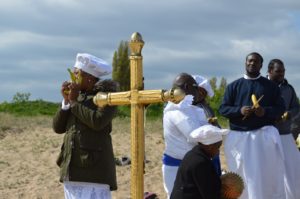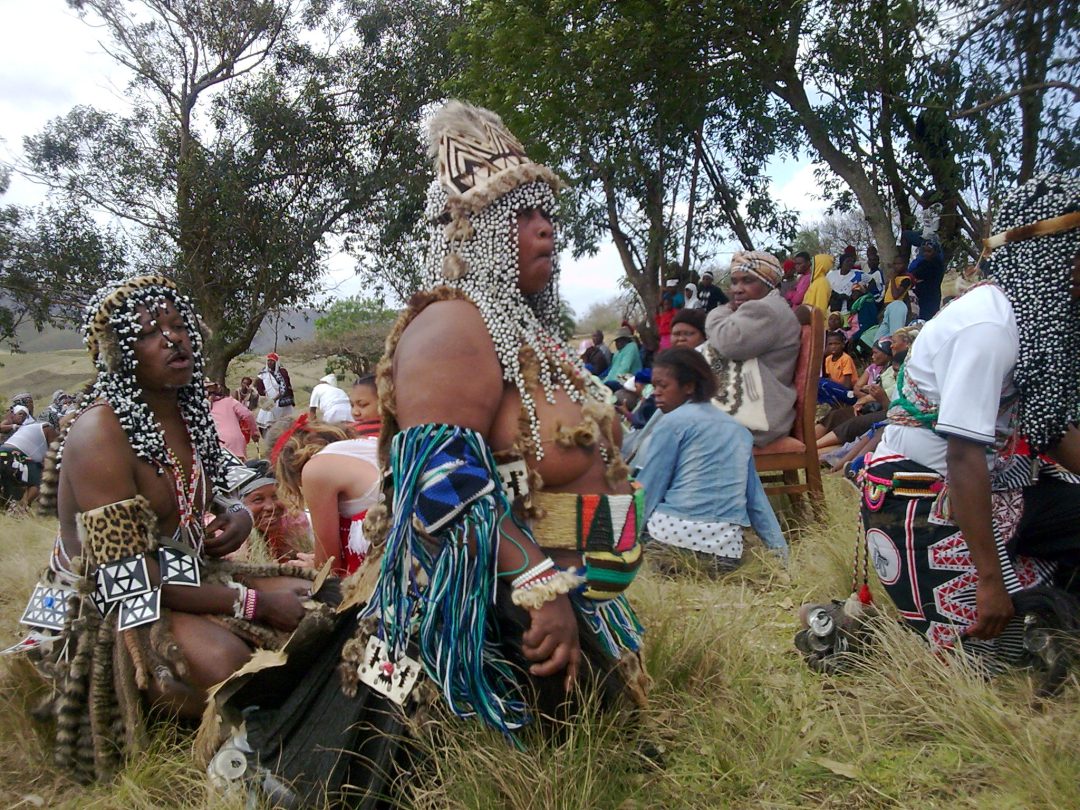African cultures of southern, central and eastern Africa all had the concept of God; although the colonialists claimed that they did not. In Ki-Swahili, God is “Mungu”, in Tswana, he is “Modimo”, in Zulu/Ndebele the almighty is “Unkulunkulu” or “Umlimo”, in Ikalanga he is “Ndzimu”, and the Shona of Zimbabwe refer to him as “She”, the King. In all these cultures, there is only one God, and there can only be one God. I do believe that this one God that the African cultures refer to is the same God that Judaism and Christianity are talking about. The difference comes in the approach to worshipping this one and only God.
A Relative’s Death
According to the African religion, a person talks to “Ndzimu” through his dead ancestors, “the amadlozi” in the Ndebele language. When your relatives die, their spirits hover above, watching you at all times. They watch you because they want only good things to happen to you, and they also want you to do only good things in your life. When you do good, they are happy with you, and they approach “Ndzimu” and plead to him to see your good deeds and treat you well and bless you. However, if a person is bad (let us say, a man who does not take good care of his children, ill-treats and beats up his wife, steals from his neighbors and the community (say, a corrupt politician), does not respect the elderly and the weak), the “amadlozi” become furious with this kind of person, and stop talking to God in good light about and for him. When this happens, bad things start happening to this person: he might get sick, lose his job, he might be involved in an accident or some other evil might befall him.
Amadlozi Abandoning Someone
A sign that the “amadlozi” have abandoned someone is when a succession of bad things happen to someone. A good example is one of my uncles-his children died, his wife ran away from him a month later, a few weeks after his wife left him he lost his job and soon after he lost his job, he was involved in an accident and had to be hospitalized for a long time, and while he was in hospital the roof of his house was blown off by a whirlwind.
 When the bad things happen to this person, he starts calling upon his “amadlozi” to help him by asking for good things for him from “Ndzimu”, but his “amadlozi” at this time have abandoned him and he is all by himself in this world. He cannot talk directly to “Ndzimu” himself, because “Nzimu” only listens to “amadlozi”, and any rate, “Ndzimu” too is angry with him for being a bad person. This person must then first make his “amadlozi” happy again so that he can enlist them to plead for him to “Ndzimu” to change his fortunes. In the Ndebele/Shona/Tswana cultures, there is only one way for this person to make his “amadlozi” happy: he must have a big ceremony where all his living relatives must be present. The whole community is also invited to this celebration to eat, drink and merry. However, behind the scenes, the “sinner” is grilled by senior relatives about his deeds and must confess and repent his deeds. In my uncle’s case, he had committed adultery! These elderly relatives then make some offerings to the “amadlozi” in the form of expensive and beautiful earthen pots, cups, plates, and other items of value. These items are taken to an isolated spot in the bush, where they are left for the “amadlozi” to take and enjoy. These items do disappear, but it is up to someone to believe that the “amadlozi” take them or that a thief comes by and takes them. When I grew up, I witnessed these ceremonies, in Ndebele called “ukuthabisa amadlozi” (making the ancestors happy), and soon after the ceremonies the luck of the offending member of the family did change.
When the bad things happen to this person, he starts calling upon his “amadlozi” to help him by asking for good things for him from “Ndzimu”, but his “amadlozi” at this time have abandoned him and he is all by himself in this world. He cannot talk directly to “Ndzimu” himself, because “Nzimu” only listens to “amadlozi”, and any rate, “Ndzimu” too is angry with him for being a bad person. This person must then first make his “amadlozi” happy again so that he can enlist them to plead for him to “Ndzimu” to change his fortunes. In the Ndebele/Shona/Tswana cultures, there is only one way for this person to make his “amadlozi” happy: he must have a big ceremony where all his living relatives must be present. The whole community is also invited to this celebration to eat, drink and merry. However, behind the scenes, the “sinner” is grilled by senior relatives about his deeds and must confess and repent his deeds. In my uncle’s case, he had committed adultery! These elderly relatives then make some offerings to the “amadlozi” in the form of expensive and beautiful earthen pots, cups, plates, and other items of value. These items are taken to an isolated spot in the bush, where they are left for the “amadlozi” to take and enjoy. These items do disappear, but it is up to someone to believe that the “amadlozi” take them or that a thief comes by and takes them. When I grew up, I witnessed these ceremonies, in Ndebele called “ukuthabisa amadlozi” (making the ancestors happy), and soon after the ceremonies the luck of the offending member of the family did change.
It must be noted that the “Ndzimu” only listens to the “amadlozi” who were good while they were living people.
Therefore, if someone has evil parents when they die they will not be able to intercede for their child to “Ndzimu” because “Ndzimu” does not listen to bad people. The good thing is that everyone has many “amadlozi”-the great-grandparents, aunts, and uncles. When the bad relatives die, they do try to be “amadlozi”, but “Ndzimu” ignores them. After a while, they realize that “Ndimu” will never talk to them, and they give up trying to be “amadlozi” and become ghosts. They then live the rest of their lives feeling bitter, and frightening people at night by lighting mysterious fires in the air and using bats to harass people.






